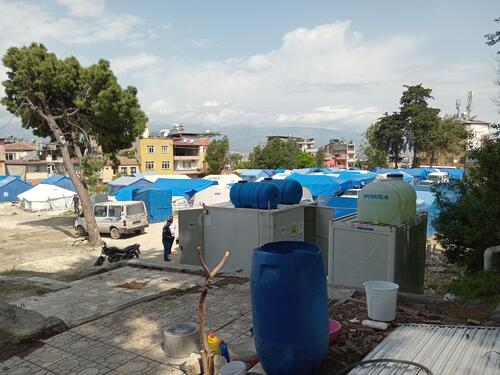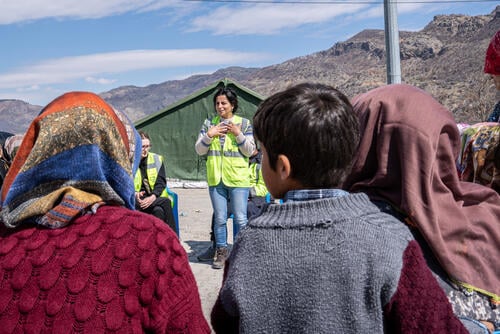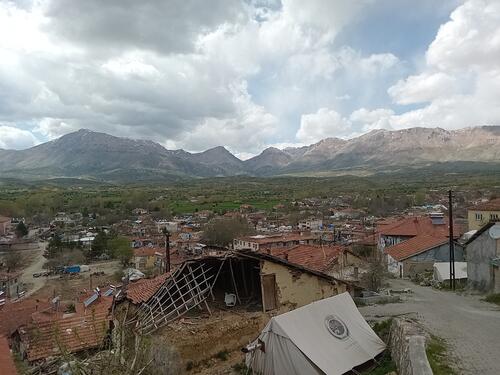As of 31 May, Médecins Sans Frontières (MSF) will hand over intervention activities in Türkiye, as the emergency response ends, following the devastating earthquakes that killed 51,000 people in the country's southeast.
After the first quake struck on 6 February, MSF supported Turkish civil society and non-governmental organisations (NGOs) in responding to some of the most acute needs, including psychosocial support and mental health care, water and sanitation services, hygiene, food, shelter and other vital supplies and services.
“Even though the emergency phase has now passed, our thoughts are with the many people who have been affected by the earthquakes in Türkiye,” says Ozan Ağbaş, MSF emergency support manager.
“Up to three million people continue to live in provisional housing, and as they continue the task of rebuilding their lives, the physical and mental effects of their ordeal remain prevalent,” says Ağbaş.
“Now that the most acute needs have largely been met, as a medical humanitarian organisation providing assistance in emergencies, we have started handing over our activities to local organisations and authorities. Throughout the coming months, we will still offer some support to local organisations who continue offering relief services,” he says.
MSF-supported teams were among the first to offer psychological support to families of the victims, the first-response volunteers, and search and rescue teams. During the emergency phase of the response, MSF-supported NGO staff delivered over four million litres of water, 96.6 tons of fruits and vegetables, and nearly 39,000 hygiene kits.
We also provided and installed 173 showers, 350 toilets, and donated 65 containers and 375 tents, while over 10,100 people received psychosocial support. Teams also donated an X-ray machine to a hospital in Kahramanmaraş, and a water pump and tanks to the Hatay Training and Research Hospital.
Up to three million people continue to live in provisional housing... as they continue the task of rebuilding their lives, the physical and mental effects of their ordeal remain prevalent.Ozan Ağbaş, MSF emergency support manager
In addition, our teams helped construct three centres – in Adıyaman, Kahramanmaraş, and Malatya provinces – which serve as essential psychosocial and living spaces. These centres are a safe haven in central locations, open to all people, especially to women and girls, offering psychosocial activities for children, washing machines, showers, and separate rooms for mothers with newborns so that they can breastfeed in peace. The centres will be supported by our teams, even after scaling down our activities.
“This is the fifth time in the last 30 years that MSF has worked hand in hand with local groups and staff to assist people affected by earthquakes in Türkiye,” says Ağbaş. “Either directly, or by supporting local NGOs, our teams responded to the earthquakes in 1996, 1999, 2011, and now in 2023.
“As an independent, neutral and impartial international medical humanitarian organisation, we remain ready to support people in Türkiye in the future, should our assistance be required,” he says.
All MSF relief activities in Türkiye were carried out by supporting local NGOs, including Imece Inisiyatifi, Yardım Konvoyu, Maya Vakfı and others. Since the early phase of the earthquake response, these NGOs have been active in Adıyaman, Gaziantep, Hatay, Kahramanmaraş, Kilis, and Malatya provinces, delivering much-needed aid and relief to people affected by the earthquakes.






